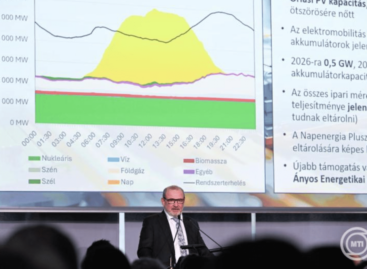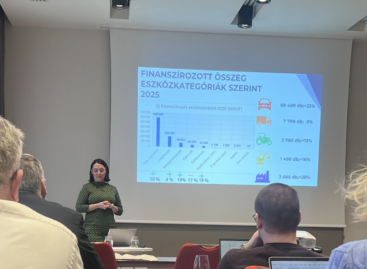Magazine: Migrants in the labour market: crisis or opportunity?
Last year more than 1.2 million people asked for asylum in the European Union, twice as many as in 2014. Many experts say that from an economic and labour market perspective the next six months can be critical: as many of these refugees need to be given jobs as possible, as soon as possible.
According to an IMF forecast from the end of January, migrants can contribute 0.09 percent to the European Union’s GDP growth in 2016 and 0.13 percent in 2017. In countries such as Austria, where the highest numbers of refugees settled, this ratio could reach 0.5 percent. IMF’s report also calls attention to the fact that member states also spend a lot of money on providing migrants with food and accommodation. If these people got jobs quickly, their contribution to GDP growth would be as high as 0.25 percent at EU level.
The analysis also mentions that several studies have proved that former migration waves to the EU or the USA had no significant influence on average wages or unemployment if migrants were successfully integrated into society. Europe’s population is aging rapidly aging, while migrants are typically young (Eurostat data): between May and October 2015 730,000 migrants entered the European Union legally and 82 percent of them were younger than 34 years old.
Germany needs 173,000 workers at the moment and experts say this number may quadruple by 2020 if nothing changes. Although most of the migrants have low qualifications, many of them have secondary school or university degrees, especially those coming from Syria. The problem is that for instance in Sweden it takes almost a year for the authorities to recognise foreign diplomas and degrees. What is more, the average time after which a highly qualified migrant can start working in his field is six years.
However, most migrants don’t have degrees to be recognised, so what is left for them is doing jobs that require little or no qualification. There are many of these in the EU as Europeans are least and least keen on taking these jobs. There is great discrepancy between actors in the economic and political sectors. Most enterprises see unused potential in the influx of migrants but governments only see the danger. Hamdi Ulukaya, the CEO of yogurt company Chobani joined forces with AirBnB, LinkedIn and Ikea and started a programme which aims at assisting refugees in learning the basics of the food industry, offering them jobs afterwards.
Unlike in the USA, in the EU migrants aren’t allowed to work legally for quite a long time, which isolates them from society in every possible way. Demetrios Papademetriou, president of Migration Policy Institute Europe is of the opinion that the European Union’s only chance is ending this practice, for instance he reckons that there is no point in making it a requirement for migrants to speak the host country’s language very well. In addition to language problems, European employers also have to face issues arising from cultural differences. For instance a representative of a German job agency told the Economist that sometimes men coming from countries in the Near East don’t accept female bosses.
All in all, we can say that the migration crisis carries just as many opportunities as dangers. The last year and a half was tough for the European Union but crisis management isn’t over yet. President of the European Council Donald Tusk reckons that a solution must be found until the end of spring. If politicians don’t succeed, the result could be the end of Schengen.
Related news
EU adopts rule to prevent destruction of unsold clothing
🎧 Hallgasd a cikket: Lejátszás Szünet Folytatás Leállítás Nyelv: Auto…
Read more >New EU tariffs could arrive in 2026 – this is how they could transform the market
🎧 Hallgasd a cikket: Lejátszás Szünet Folytatás Leállítás Nyelv: Auto…
Read more >Related news
Amikor a megszámlálhatatlan megszámlálhatóvá válik
🎧 Hallgasd a cikket: Lejátszás Szünet Folytatás Leállítás Nyelv: Auto…
Read more >The number of Hungarian dishes has increased to one hundred with the terpertős pogácsa and Vecsés sauerkraut
🎧 Hallgasd a cikket: Lejátszás Szünet Folytatás Leállítás Nyelv: Auto…
Read more >The leasing market was able to grow last year in a stable environment
🎧 Hallgasd a cikket: Lejátszás Szünet Folytatás Leállítás Nyelv: Auto…
Read more >










